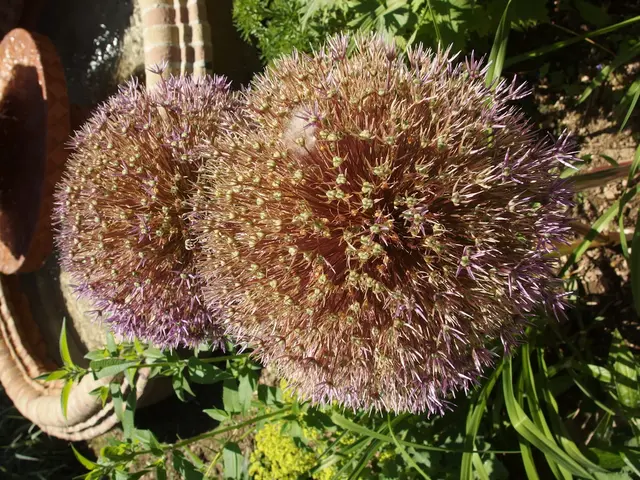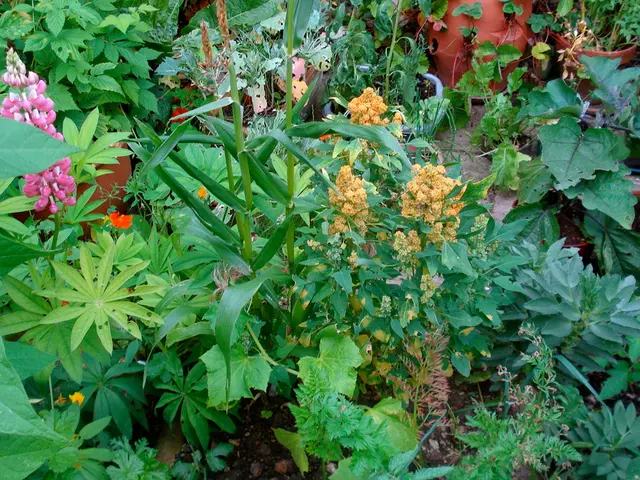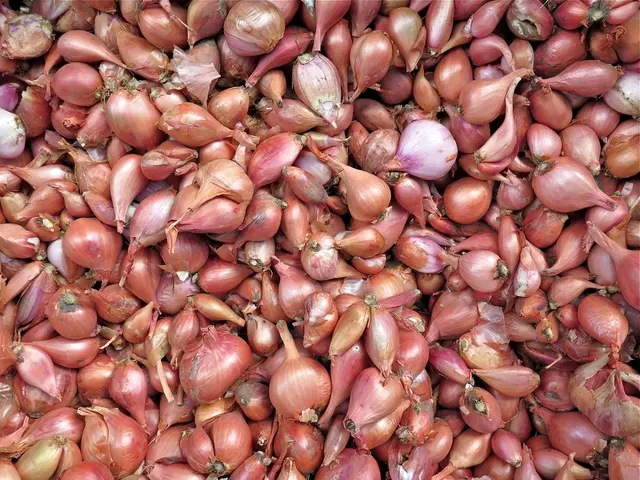Strategies for Enhanced Tomato Yield and Problem Reduction: A Comprehensive Guide
Achieving a bountiful and fuss-free harvest of juicy tomatoes requires thoughtful planning, careful attention, and a good understanding of gardening best practices. This guide will walk you through valuable tips to grow strong, healthy tomato plants and maximize your yield.
Determining the Right Tomato Variety
Choosing the suitable tomato variety for your climate, growing space, and desired harvest is of utmost importance. Determinate varieties, known for their compact growth, are ideal for smaller spaces as they produce their fruit all at once. Indeterminate tomatoes, on the other hand, will continuously grow and bear fruit throughout the season. Opt for early, mid-season, or late producers depending on your growing season, and explore disease-resistant varieties for a significant boost in yield 1. Heirloom types offer exceptional flavor, but they may require more care; hybrids are generally more robust 2.
Building a Strong Foundation
Begin by nurturing healthy seedlings—the foundation for a successful garden. Choose seedlings that exhibit sturdy stems, vibrant green leaves, and no signs of disease 1. Healthy seedlings provide a strong head start for your plants, reducing potential transplant shock and encouraging vigorous growth.
Proper Planting Techniques
Proper planting serves as the lynchpin for tomato growth. Plant tomatoes to a depth of 2/3 their stem length to encourage strong root growth and stability 1. Encourage a more extensive root system, which increases resistance to wind and stress. For healthy soil, mix compost and apply mulch to retain moisture and suppress weeds 4.
Consistent Watering Patterns
Delivering consistent moisture to the soil is vital for optimal tomato growth. Keep the soil evenly moist, watering deeply 1 to 2 times a week to avoid cracking and blossom end rot 1. Avoid shallow watering, which fosters weak root systems. Use soaker hoses or watering wands to deliver water directly to the base of the plant and monitor rainfall during hot, dry spells.
Adequate Spacing, Support, and Nutrition
Maintaining good spacing ensures proper airflow, prevents disease, and allows sunlight to reach lower leaves. Space tomatoes 18 to 36 inches apart. Provide support using cages, trellises, or stakes to keep the plant upright and prevent fruit from touching the ground. Feed regularly with a balanced fertilizer or tomato-specific feed every 2 to 3 weeks, avoiding over-nutrition.
Disease Prevention and Pest Control
Regularly inspect plants for signs of pests, like aphids, hornworms, or whiteflies, and treat promptly with neem oil or insecticidal soap. Pruning helps improve air circulation and reduce disease risk, while crop rotation prevents soil-borne diseases from persisting.
Monitoring Ripeness and Harvesting
Harvest tomatoes regularly to encourage continued fruit production and prevent cracking. Monitor for signs of ripeness daily and use gentle hands or garden scissors to avoid damaging stems. When frost threatens, pick green tomatoes to allow them to ripen indoors.
Committee Techniques for Greater Yield
By implementing these essential techniques, tomato growers can boost their yield, prevent common issues, and cultivate more flavorful fruits. Small adjustments, like consistent watering, proper spacing, and careful pruning, can have a substantial impact on the harvest. Aspiring to experiment, track successes and challenges, and hone your gardening skills with each passing season will lead to an abundance of juicy, homegrown tomatoes.
[1] University of Illinois Extension – Types of Tomatoes, https://go.illinois.edu/tomatotypes[2] North Carolina State University Extension – Tomato Production | Home Gardener, https://www.ces.ncsu.edu/depts/hort/consumer/gardening/vegetables/tomatoes.html[3] University of Florida IFAS Extension – Growing Tomatoes in Florida – Choosing the Right Seeds, https://sfyl.ifas.ufl.edu/lawn-garden/hobbies/tomatoes-the-tasty-fruit-of-our-labor-growing-tomatoes-in-florida-choosing-the-right-seeds/[4] University of Missouri Extension – Organic Gardening, https://extension.missouri.edu/publications/g8459[5] University of Minnesota Extension – Gardening Know How – Tomatoes, https://www.extension.umn.edu/garden/fruit/tomatoes/
- To enhance the flavor of homegrown tomatoes, consider growing heirloom varieties, although they may require more care compared to hybrids.
- Tending to the home-and-garden by following proper planting techniques, like planting tomatoes to a depth of 2/3 their stem length, promotes strong root growth and stability.
- Achieving a fruitful food-and-drink garden involves understanding the lifestyle of tomatoes, such as the need to maintain consistent watering patterns and avoid shallow watering that may foster weak root systems.








